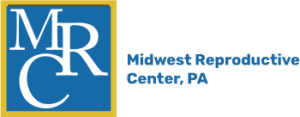Getting pregnant later in life despite infertility issues
Many patients want to know how advanced maternal age impacts fertility. Dr Dan Gehlbach tells patients that age negatively impacts fertility; however, he also stresses that it is possible to treat age-related female infertility.
Dr Gehlbach understands that a woman might wait to start a family for a wide variety of reasons, and that’s why he is here to help patients who struggle with infertility caused by age.
The impact of advanced maternal age
Women are born with a limited number of eggs and over time, the quality and quantity of the eggs, or ovarian reserve, decreases.
- When a woman is in her 20s, she has a 20% chance for getting pregnant each month.
- In her 40s, she only has a 5% chance for getting pregnant each month.
In addition, when a woman is in her 40s, her eggs are more likely to contain chromosomal abnormalities. Pregnancies with chromosomally abnormal embryos are more likely to result in a miscarriage.
After testing, Dr Gehlbach can recommend fertility treatments to combat age-related infertility
Age does affect a woman’s fertility; however, Midwest Reproductive Center offers treatments for advanced maternal age. If a woman is over the age of 35 and has tried unsuccessfully to get pregnant for 6 months, the American Society for Reproductive Medicine recommends that she visit a fertility specialist.
Dr Gehlbach, a board certified reproductive endocrinologist, will start the treatment process by completing an assessment of ovarian reserve.
- Antral follicle count is used to determine a patient’s ovarian reserve.
- Anti-Mullerian Hormone (AMH) is a lab test that is a measure of ovarian reserve.
After Dr Gehlbach receives the test results, he will recommend treatment options. In-vitro fertilization(IVF), IVF with PGS and donor egg IVF are the most common fertility treatments for advanced maternal age.
- IVF involves removing the female patient’s eggs and then fertilizing them with her partner’s sperm in a laboratory. The fertilized embryo can then be transferred to the patient’s uterus. Adding PGS, preimplantation genetic screening, prior to transfer will help ensure that we choose chromosomal normal embryos.
IVF is effective, but it has a success rate of 20% per cycle in women who are 40 years old. However, by age 43, the chance for getting pregnant using IVF is less than 5%.
If a woman has not found success with IUI or IVF with PGS, then donor egg IVF might be the only remaining option.
- Donor egg IVF involves using eggs from a younger egg donor. The donor eggs are fertilized in a laboratory using the sperm of the patient’s partner. At the same time, the patient is given hormone therapy to prepare her uterus to carry the embryos. After fertilization, the embryos are transferred into the patient’s uterus. With donor egg IVF, the child will not be related to the female patient; however, it provides the woman a wonderful opportunity to experience pregnancy and motherhood.
There are treatment options available for women struggling with age-related infertility. If you would like more information about age and infertility, please click here. If you would like to know more about fertility treatments for advanced maternal age, please contact Midwest Reproductive Center.



